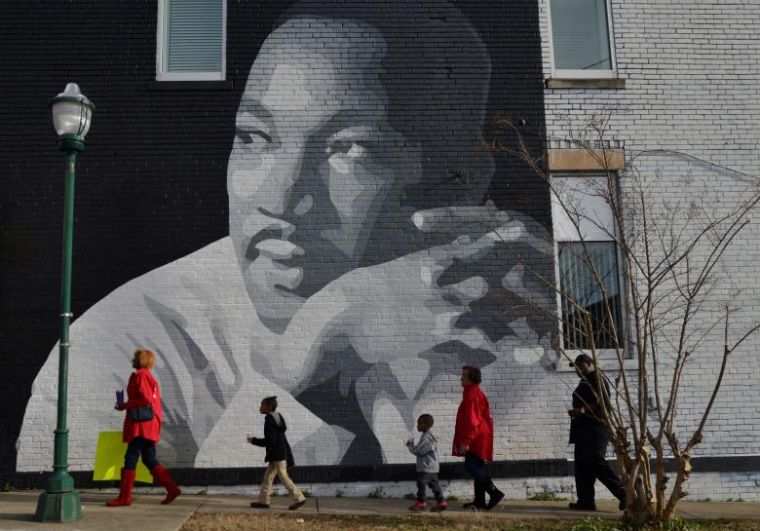As black people cry for justice, Dr King speaks powerfully to us today

I guess we've all been taken aback by the astonishing reaction to George Floyd's death. The distressing video footage has clearly played a crucial part in this but even so, few could ever have predicted it would result in the 'dismantling' of a police force or 'virus ignoring crowds' flooding onto the streets of cities as far apart as Bristol in England and Sydney, Australia.
All this got me wondering how the great and late Dr Martin Luther King would have reacted, and so I revisited a sermon he preached in the heady days of the early 1950s when he and others were celebrating the Supreme Court's decree to end the De Plessey ruling of 1896 - the decree that stated "separate but equal" public facilities could be provided for different racial groups.
Dr King clearly saw the end of this decree as a gamechanger, but his subsequent death and the current worldwide unrest are proof there is still is so much to do if we want to see the world rid of racism.
Dr King would have been the first to recognise the size of the challenge because he stressed we need to be wary of superficial optimism.
"All progress is precarious," he declared. "The death of one tyranny is followed by the emergence of another."
How right he was too. Sin has a shelf life of course, but it will be with us until Jesus comes back. Until then we must be prepared for the resurgence of evil in whatever form it might take. Xenophobia, racial hatred and inter-ethnic strife are but persistent symptoms of our fallen human nature.
But that doesn't mean we have to throw up our hands in despair either. As Dr King went on to say, we must also avoid "crippling pessimism" too. And rightly so, given God's promise to give His people "divine power to demolish strongholds" (2 Corinthians 1). That is why Christians should be at the forefront of the battle against any ideology that devalues and dehumanises their fellow human beings.
For we are not alone. God is not "outside the world looking on with a sort of cold indifference", as King reminded us. He is no unmoved mover. Our cries for justice, longings for peace and harmony are not evolutionary flukes. They are reminders of how the Creator always intended us to live.
So why doesn't God Himself do more to rid the world of evils like racism? Dr King was acutely aware of this challenge and concluded that we cannot "understand all the ways of God or His particular timetable for grappling with evil". In other words, there are times when all we can do is trust. The alternative is to give up in despair.
I never cease to be amazed by what this twentieth century giant said and did, and I marvel at the way he kept going given the threats and the danger he faced. But he had a dream, a dream he thought worth dying for. But how did he do it? He explained it this way: "We must also remember that God does not forget His children who are the victims of evil forces. He gives us the interior resources to bear the burdens and tribulations of life."
Words such as these make we wonder if he had been thinking of these words of Isaiah before he put pen to paper:
"The Lord is the everlasting God,
the Creator of all the earth.
He never grows weak or weary.
No one can measure the depths of his understanding.
He gives power to the weak
and strength to the powerless.
Even youths will become weak and tired,
and young men will fall in exhaustion.
But those who trust in the Lord will find new strength.
They will soar high on wings like eagles.
They will run and not grow weary.
They will walk and not faint."
Rob James is a Baptist minister, writer and church and media consultant to the Evangelical Alliance Wales. He is the author of Little Thoughts About a Big God.











